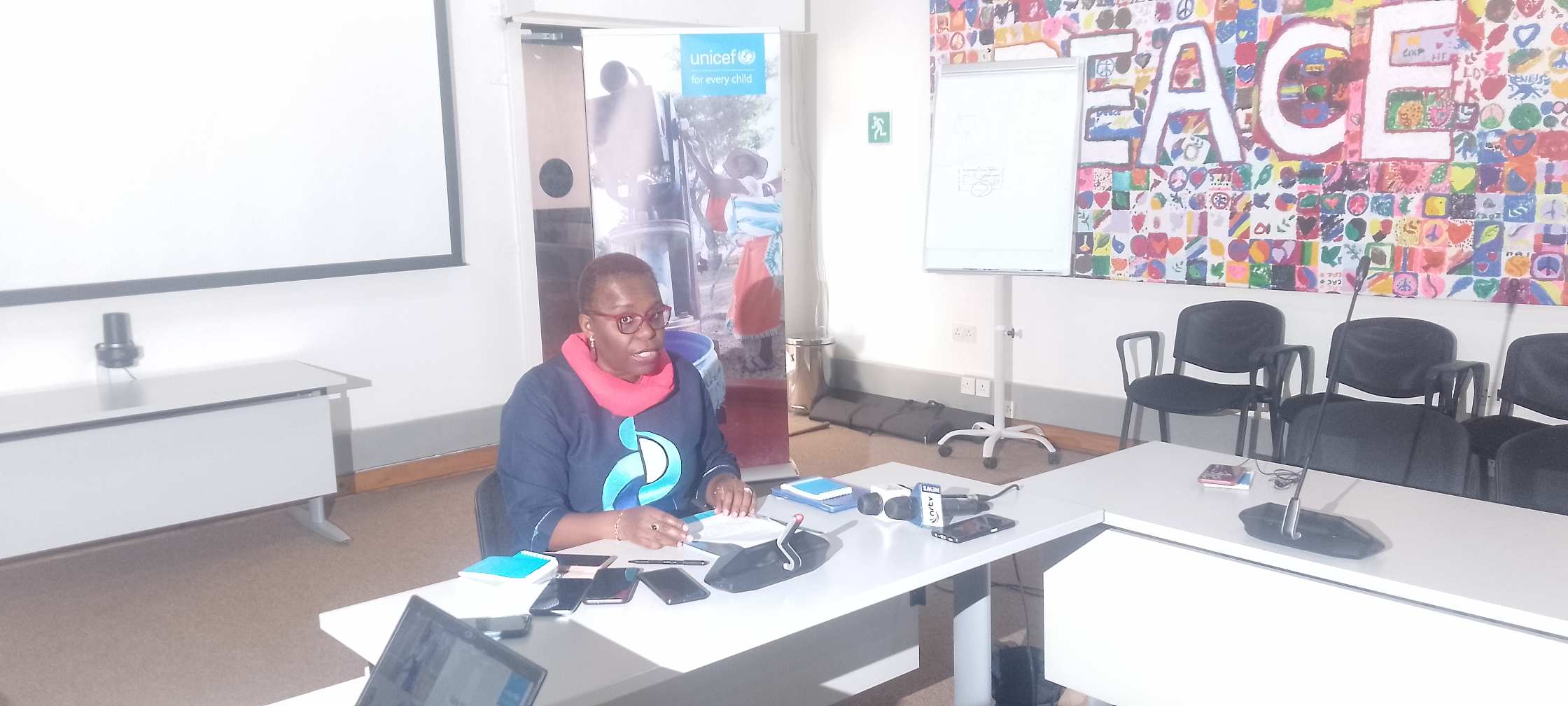|
Getting your Trinity Audio player ready...
|
The United Nations Children’s Fund (UNICEF) Zimbabwe has said access to safe water and improved sanitation and hygiene services are key to ensuring children’s rights to health, nutrition, education, and protection. As Zimbabwe faces the El Nino-induced drought, the UN agency is calling on the Government and partners to prioritise investment in water, sanitation, and hygiene to build resilience at the community level.
Addressing journalists at a press conference in Harare today, Etona Ekole, the UNICEF Zimbabwe Representative said access to safe water remains a challenge for communities in Zimbabwe. Only 81 percent of rural people have access to improved water sources (data 2024 – ZIMLAC). About half of the households have access to safe water less than 500 meters from home.
Zimbabwe is currently experiencing strong and intense El Nino-induced drought, leading to water scarcity and further jeopardising access to safe water for many Zimbabwean people. Because of the drought, nearly four percent of the boreholes in the rural areas in Zimbabwe have dried up, particularly in Matabeleland South and Masvingo Provinces. The situation is worsening. Broken boreholes rose to more than 6,000 by August 2024. Access to safe water is also worrying in urban settings, including in Harare and Bulawayo, where water production is insufficient to cover the needs.
“Water scarcity increases the risk of waterborne diseases and malnutrition among children. It can also lead to school dropouts and child labor and increases the risk of child exploitation and abuse as children are mobilised to fetch water from far away distances, in insecure circumstances as water is sometimes collected late in the evening or early morning.
“The El Nino-induced drought reminds us of the critical nature of ensuring sustained access to water, sanitation, and hygiene (WASH) to prevent and respond to climate change shocks like droughts. Our response cannot be limited to providing food assistance. By ensuring sustainable access to water, sanitation, and hygiene, we contribute to ensuring the protection of children’s rights, including the right to health, nutrition, education, and protection. By providing access to safe water in communities, we build their resilience to cope with climate change-related shocks like the El Nino-induced drought and prevent child malnutrition, morbidity, and mortality. With water, we contribute to a sustainable future at the community level,” Ekole said.
Tariro Mavi, the UNICEF Zimbabwe WASH Specialist said water is important in nutrition, quality education, and healthcare services.
“The importance of water is central to delivering all those issues. Again, water is very important for building communities’ resilience. When we talk about resilience in communities, we cannot move without talking about water. It brings about the sustainability for communities that we all live in. When we come down to Zimbabwe, we are realizing that 81% of Zimbabweans have access to safe water. That is either the piped water that we receive, the handpumps that we see in different communities, meaning that there are still some communities that do not have access to that kind of service level.
- rehabilitation of existing water systems and construction of new water systems, including climate-resilient multi-purpose solar-powered piped water systems that enable safe drinking, domestic, livestock, and garden water.
- increasing water storage capacity at the community and institutional level.
- promoting safe hygiene and sanitation practices and water conservation through established community health and hygiene mechanisms and mass media.
To deal with the El Ninon induced drought, UNICEF appealed for 34 million USD for the rehabilitation of water points and to ensure people in need are provided with access to safe water. While funding contributions have been limited until now, UNICEF, the Government and partners in the water, sanitation and hygiene sectors were able to
- set up a dashboard to track and monitor water systems in rural areas.
- provide more than 55,000 people in need access to safe water through rehabilitating 67 boreholes and developing 15 solar piped water systems.
- provide nearly 55,000 people with access to critical water supplies, including water treatment chemicals, soap and water containers.
- installed 50 health clubs in schools and communities to promote appropriate behaviour in times of reduced access to safe water.
UNICEF calls on the Government, donor community, and partners to prioritise interventions aimed at providing sustainable access to water, sanitation, and hygiene facilities for children and their families in communities. Increased funding will enable the implementation of innovative approaches that build community resilience to effectively mitigate the consequences of climate-related shocks, preserve development gains and protect the well-being of children.






